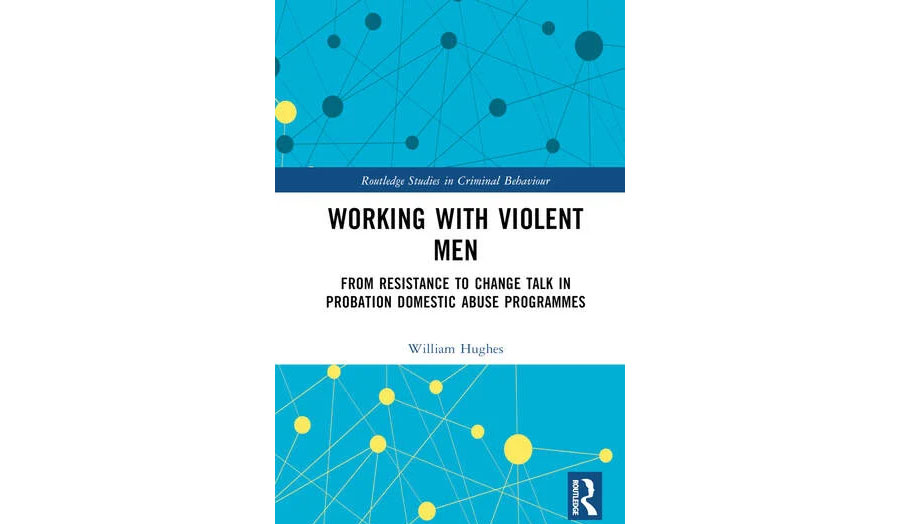7 March 2024
The London Metropolitan University’s Interdisciplinary Research Forum (IRF) organised the launch of a book by Dr Will Hughes, Working with Violent Men: From Resistance to Change Talk in Probation Domestic Abuse Programmes (Routledge, 2024).
Dr Will Hughes is a Senior Lecturer in Criminology at London Metropolitan University. He was previously a probation officer and specialised in staff development and work with men who have histories of domestic violence. During the last 20 years, he has worked as a group facilitator for various probation programmes and community programmes, including Caring Dads, the Integrated Domestic Abuse Programme, and the Building Better relationships programme.
Working with Violent Men gives a detailed insight into working with men who have been violent towards intimate partners. The book is based on participant observation at domestic abuse groups and is also informed by the author’s experience of working with domestically abusive men, as a probation officer and facilitator of domestic abuse programmes. The book’s approach is interdisciplinary as it discusses domestic violence, gender, probation, and the rituals of social interactions from criminological and sociological perspectives. It approaches the groups as creating their own micro social orders, involving rules and rituals.
These are continuously constructed and negotiated by participants, against a backdrop of ideas about masculinity, and involve the performance of gendered roles. Understanding the perspectives of these men, as well the interactional rules, rituals, and dynamics of programmes, enables facilitators to navigate the hostility that men display and engage them in a process of change.
Attention to these considerations has implications for the effectiveness of group-based interventions in reducing violence against intimate partners and the training of those who deliver programmes. More general extrapolations are also drawn in the study, about contemporary understandings of gender, masculinity, identity, and effective communication within groups.
In conversation with Professor Svetlana Stephenson and in the subsequent Q&A session, Will discussed his experience of leading domestic abuse programmes, their effectiveness, the role of humour in group work, the pressures experienced by facilitators, and why it is important to challenge perceptions of masculinity that lead to violence in a supportive group context.

Image credit: Routledge
